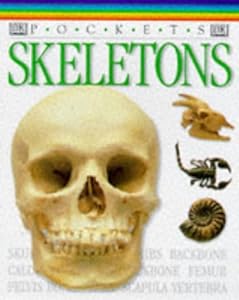The Easiest Way to Understand Math in Poker Image by alist via Flickr
Image by alist via Flickr
I have read quite a few poker books. For me, if I can learn just one concept in a poker book, I feel the investment is a good one.
I have been reading Swayne's
Advanced Degree in Hold'em and he has an excellent section on poker math. I think it may be the best I have ever seen. Here is a summary of this section.
1. OddsLet's start with odds. In poker, if the odds are 14 to 4 it is shown as 14:4. The left hand side of the 14:4, the 14, means how many times something won't happen and you compare it to the right side, the 4, which means how often something will happen. Said another way, for every 18 events (14+4), it won't happen 14 times and it will happen 4 times.
Key: The left hand side is how many times something won't happen: the right hand side is how often something will happen.
The odds of 14 to 4 and be simplified by dividing the right hand side number, the 4, into the left hand side number, the 14. So, 14 divided by 4 is 3.5. Therefore the odds of 14 to 4 are the same as 3.5 to 1 or 3 1/2 to 1.
2. A Poker Example of OddsLet's say you have two clubs in your hand, and the flop has two clubs. What are
the odds against you getting another club on the turn?
Simply, it is "how often you won't catch a club: how often you will will catch a club."
Since there are 3 cards on board and 2 in our hand, the number of cards we don't know are 47. The number of cards that will help are the 12 club cards subtracted by the four club clubs we know about it, or 9.
Therefore, there are 38 cards that won't help: 9 cards that will. Or, 38:9. To simplify, 38 divided by 9 is 4.2 to 1. The odds against you getting another club on the turn is 4.2 to 1.
3. ProbabilityProbabilities are expressed as a percent. To convert pot odds into probabilities is simple.
If the odds are 3:1, it means that for every 4 events, it will happen one time. 1 divided by 4 is .25.
.25 is the same as 25%. Therefore, you now know that if the odds are 3:1, it means that the probability is 25%.
Now that you understand odds and probabilities, let's move to pot odds and how to use pot odds.
4. Pot OddsPot odds are the $ odds which the pot is offering. The $ odds the pot is offering is the amount of money in the pot compared to the amount of money you must pay to stay in the hand.
Example:
There is $50 in the pot and you must bet $10 to say in. The pot is offering you $50 for your $10 bet, or said another way, you are risking $10 to win $50.
In odds for poker, this is $50:$10, or 50:10 or 5:1. Therefore, the pot is offering you 5:1.
5. Using Pot OddsTo help you decide whether to stay in or fold post flop, you want to know the odds the pot is offering you compared to the odds of making your hand.
Key: If your pot odds are greater than your odds of winning, you stay in the hand.
Another way to say it: if the pot is offering you more than your odds against (assuming that you will win when you make your hand), you stay in the hand.
Example:
Earlier we figured out the odds for catching the flush card on the turn as 4.2 to 1. If the pot is offering you $50 for your $10, then the pot is offering odds of 5 to 1. Since the pot odds are more than the odds of hitting your flush, you stay in the hand.
If there were only $30 in the pot, and you had to bet $10 to stay in the hand, you would only be getting 3:1. Since the pot is offering you less than your odds against, you fold.
This makes it simpler to understand when you are getting favorable odds to call a bet, and when you are not getting favorable odds. You want the pot to be giving you better odds than the odds against making your hand in order to make a favorable call.
Another concept in poker is expected value or EV. Let's see how that works.
6. Expected Value (EV)Expected value means the probability of winning times the amount you can win
minus the probability of losing times the amount you must bet to see if you win.
A positive expected value means that over the long run you will win more than you will lose.
Example:
Again, assuming we have flopped a flush draw, what is the probability of making a flush on the turn?
Probability of catching the card=9 cards divided by 47 cards or .19
Probability of not catching the card is 1.00-.19 or .81.
The EV=(.19)(pot size)-(.81)(amount you must bet)
The EV=(.19)($50)-(.81)($10) or $9.5 minus $8.1= +$1.40
You will notice that the size of pot and the amount you must bet is critical in this calculation.
A positive value is good. It means that over the long run, you will win an average of $1.40.
Of course, it does not mean that you will win every time, but as long as you base your play on positive EV, you will win long term.
Using EV is the same thing as using pot odds.
 Image via Wikipedia
Image via Wikipedia![Reblog this post [with Zemanta]](http://img.zemanta.com/reblog_e.png?x-id=9b096659-6879-46da-9619-54af8d14079c)

![Reblog this post [with Zemanta]](http://img.zemanta.com/reblog_e.png?x-id=598c8c6d-ccbd-4bca-a984-d53ba7e7df47)

![Reblog this post [with Zemanta]](http://img.zemanta.com/reblog_e.png?x-id=9d2fa9e2-160a-48a1-9817-026fde339d04)

![Reblog this post [with Zemanta]](http://img.zemanta.com/reblog_e.png?x-id=6cdd774b-1569-4309-b858-eded85a366a4)


![Reblog this post [with Zemanta]](http://img.zemanta.com/reblog_e.png?x-id=6870d223-1cc7-444c-b064-d946559a2cd7)

![Reblog this post [with Zemanta]](http://img.zemanta.com/reblog_e.png?x-id=afe3822c-d2ed-403b-8445-e638309876e1)

![Reblog this post [with Zemanta]](http://img.zemanta.com/reblog_e.png?x-id=9a437e04-46fe-4c6e-bd65-46d041ef5ffc)

![Reblog this post [with Zemanta]](http://img.zemanta.com/reblog_e.png?x-id=d669382d-09f9-4b07-8ebc-8399a7137edf)












